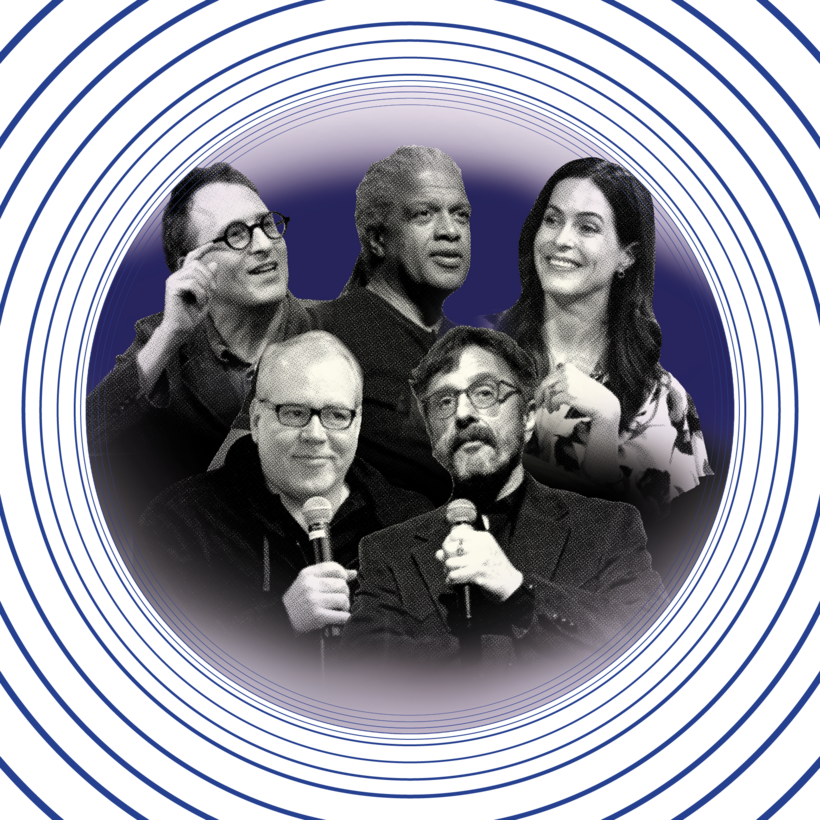In Paul Mazursky’s puzzlingly half-forgotten comedy Moscow on the Hudson (1984), Robin Williams, playing a Russian defector accustomed to the bare shelves and mingy options of his homeland, gets his first sight of all the brands of coffee available in an American grocery store—and faints. It’s too much for him to take in: the consumer-choice overload frizzes his synapses. No one, American or foreign, swoons anymore at the shiny crush of products competing for our attention. We’ve adjusted to this constant hyper-mode of overwhelmingness. And a good thing, too, because our heads would be hitting the desk or rolling off our shoulders every time we checked into the podcast emporium on iTunes.
Podcasting, like streaming television, has reached a supernova stage of content explosion. Where Netflix, with its black background, suggests Borg-cube colonization with all of those sliding carousels of gritty, grimy, gun-wielding crime shows and edgy, transgressive comedies, with a few family-friendlies flecked in like candy corn, the podcast arcade at iTunes, with its white background and airy spacing, couldn’t look more peppy and bright. Even with its collection of true-crime sagas about psycho dudes and con artists, it exudes poptimism and Oprah-esque uplift. And with that comes our old friend FOMO—fear of missing out. So many goodies, so little time. Which shows should I be listening to, where to start, and how many chortling introductions can I take?


